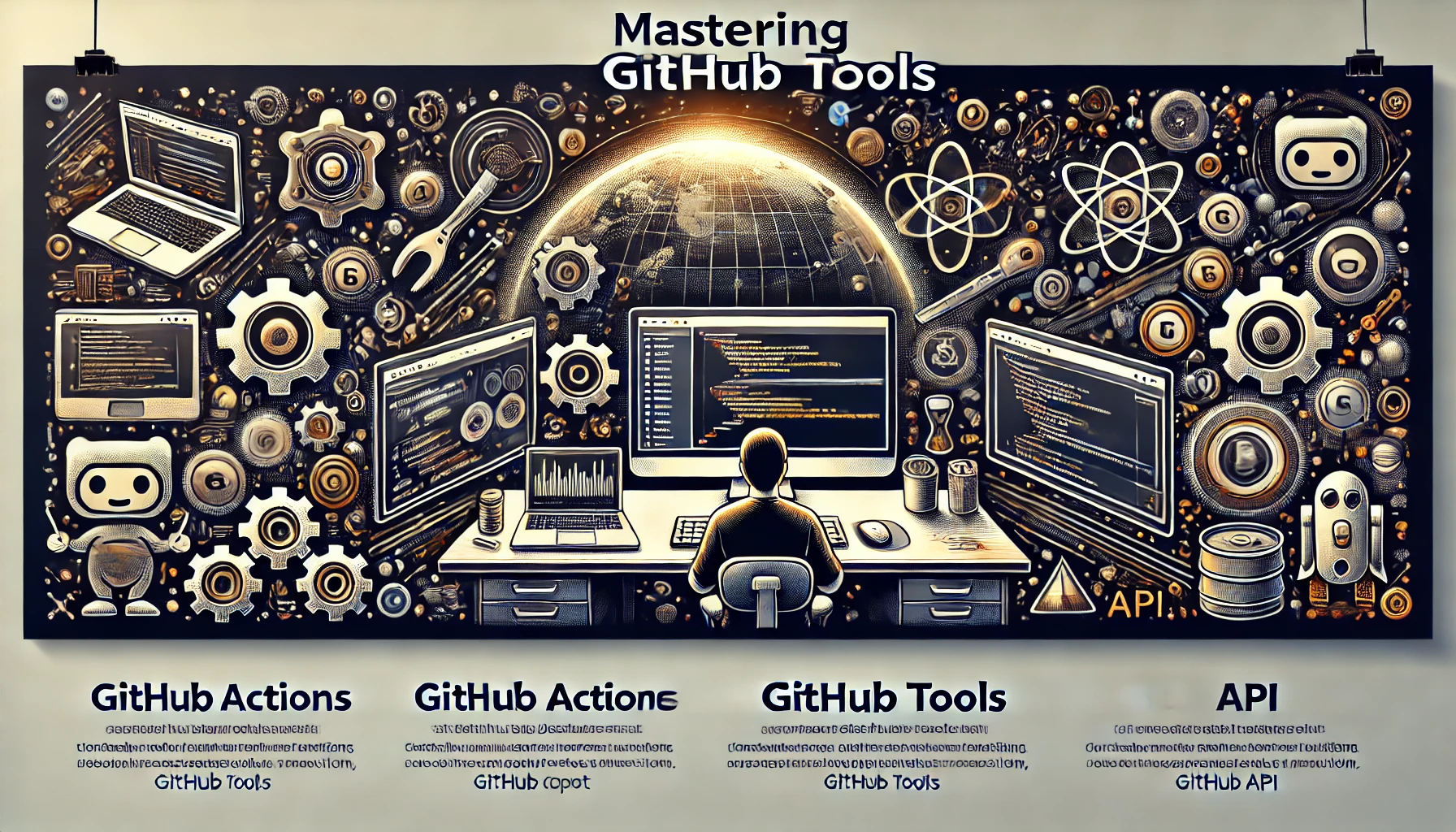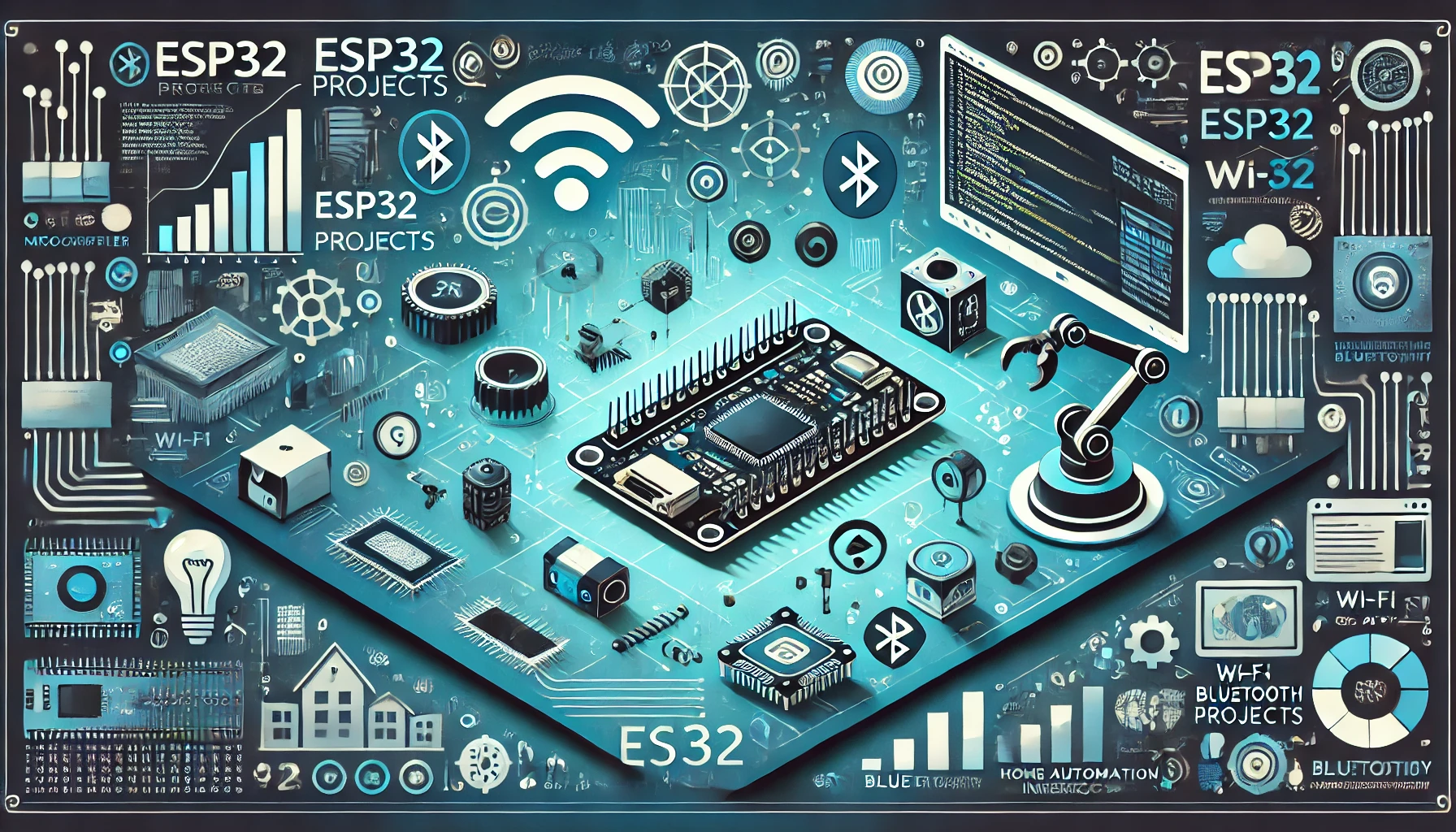GitHub Actions: Automate Your Workflow
GitHub has become the go-to platform for developers worldwide, offering a wide array of tools and features designed to streamline the development process. Whether you’re managing projects, automating workflows, or collaborating with others, GitHub provides the resources needed to boost your productivity and efficiency. In this blog, we’ll explore how GitHub Actions, Desktop, API, and Copilot can transform your development workflow. By the end, you’ll have a deeper understanding of how to leverage these tools to optimize your projects on GitHub.
GitHub Actions is a powerful automation tool that allows you to create workflows directly in your GitHub repository. With GitHub Actions, you can automate tasks such as building, testing, and deploying your code, saving time and reducing the likelihood of human error.
Key Features of GitHub Actions
- Continuous Integration and Continuous Deployment (CI/CD): Automate the process of testing and deploying code every time a change is made. This ensures that your project remains in a deployable state at all times.
- Custom Workflows: Define custom workflows that fit your project’s specific needs. Whether it’s deploying to a particular server or running a series of tests, GitHub Actions can be tailored to your requirements.
- Integration with Third-Party Services: GitHub Actions integrates with numerous third-party services, allowing you to extend its functionality. For example, you can set up a workflow that automatically updates your documentation whenever code changes are merged.
Why GitHub Actions is Essential for Developers
Using GitHub Actions, developers can focus more on coding and less on managing their workflow. By automating repetitive tasks, you can accelerate your development process and ensure that your code is always up-to-date and ready for deployment. This not only enhances productivity but also improves the quality of your software by catching errors early in the development cycle.
Streamlining Development with GitHub Desktop
While GitHub Actions is excellent for automation, GitHub Desktop provides a user-friendly interface that simplifies the process of managing your repositories locally. GitHub Desktop is an application that allows you to manage Git repositories without needing to use the command line.
Features of GitHub Desktop
- Visual Interface: GitHub Desktop provides a graphical interface for managing your repositories, making it easier to see changes, resolve conflicts, and commit updates.
- Seamless Integration: The application integrates seamlessly with GitHub, allowing you to clone repositories, create branches, and push changes with a few clicks.
- Conflict Resolution: When working on a collaborative project, conflicts are inevitable. GitHub Desktop simplifies conflict resolution by providing a clear interface for merging branches and resolving issues.
How GitHub Desktop Enhances Your Workflow
GitHub Desktop is particularly beneficial for developers who prefer a more visual approach to version control. It eliminates the complexity of command-line operations, making Git more accessible to developers of all skill levels. By using GitHub Desktop, you can manage your projects more efficiently, allowing you to focus on coding rather than administrative tasks.
Leveraging the Power of GitHub API
The GitHub API is a robust tool that enables developers to interact programmatically with GitHub. It allows you to integrate GitHub’s functionalities into your applications, automate processes, and access data in a structured way.
Key Uses of GitHub API
- Automation: Automate tasks such as creating repositories, managing issues, and monitoring repository activities.
- Data Retrieval: Use the API to fetch data from GitHub, such as repository information, user profiles, and contribution statistics.
- Integration: Integrate GitHub with other applications or services, enabling seamless interaction between platforms.
Why You Should Use GitHub API
The GitHub API is indispensable for developers looking to create custom solutions or integrate GitHub into their existing workflows. By automating tasks and retrieving data programmatically, you can streamline your operations and enhance your productivity. The API provides a level of flexibility that allows you to tailor GitHub to fit your specific needs, making it a powerful addition to any developer’s toolkit.
Enhancing Code Quality with GitHub Copilot
GitHub Copilot is an AI-powered code completion tool that assists developers by suggesting lines of code, functions, and even entire blocks of code based on context. It leverages machine learning to understand your coding patterns and provide intelligent suggestions.
Features of GitHub Copilot
- Contextual Suggestions: Copilot suggests code snippets based on the context of your current work, making it easier to write code faster.
- Learning from Code: The more you use GitHub Copilot, the better it becomes at predicting your coding style and preferences.
- Multi-language Support: Copilot supports a wide range of programming languages, making it a versatile tool for developers working on various projects.
How GitHub Copilot Improves Your Development Workflow
GitHub Copilot is like having a coding assistant at your fingertips. It helps reduce the time spent on writing boilerplate code and allows you to focus on more complex and creative aspects of your project. By providing relevant code suggestions, Copilot enhances your coding efficiency and helps you avoid common mistakes, ultimately improving the quality of your software.
Integrating GitHub Tools for Optimal Productivity
To fully maximize the potential of GitHub, it’s essential to integrate its various tools and features into a cohesive workflow. Here’s how you can do that:
Combining GitHub Actions with GitHub API
By integrating GitHub Actions with the GitHub API, you can create more dynamic and responsive workflows. For example, you can set up an action that automatically triggers a workflow whenever a specific event occurs in your repository, such as the opening of a new issue. This integration allows you to automate even more aspects of your development process, freeing up time for other tasks.
Using GitHub Desktop with GitHub Copilot
While GitHub Copilot assists you in writing code, GitHub Desktop provides a streamlined way to manage that code. By using these tools together, you can write and manage your code more effectively, ensuring that your repositories are always organized and up-to-date.
The Importance of GitHub Sponsors for Open Source Projects
For developers working on open source projects, GitHub Sponsors offers a way to receive financial support from the community. By integrating GitHub Sponsors into your repository, you can provide contributors with an easy way to support your work. This not only helps sustain your projects but also encourages more contributions from the community.
Example: An open source project that relies on community contributions can use GitHub Sponsors to fund development, allowing the project to grow and evolve while ensuring that the developers are compensated for their efforts.
Mastering GitHub for a Streamlined Development Experience
GitHub offers a suite of tools that can significantly enhance your development workflow. From automating tasks with GitHub Actions to managing repositories with GitHub Desktop, and from integrating with the GitHub API to improving code quality with GitHub Copilot, these tools are designed to make your work more efficient and productive.
By mastering these tools, you can optimize your development process, allowing you to focus on what matters most—writing great code. Whether you’re working on a personal project or collaborating with a team, GitHub provides the resources you need to succeed.
To further explore how technology is shaping various industries, check out Regent Studies, a platform dedicated to advancing education through innovative learning solutions.
External Link: For more detailed information on GitHub Actions, visit the GitHub Actions Documentation.
In conclusion, integrating these tools into your workflow will not only improve your productivity but also ensure that your projects are managed efficiently from start to finish. By leveraging the full potential of GitHub, you can take your development skills to the next level and achieve greater success in your projects.




